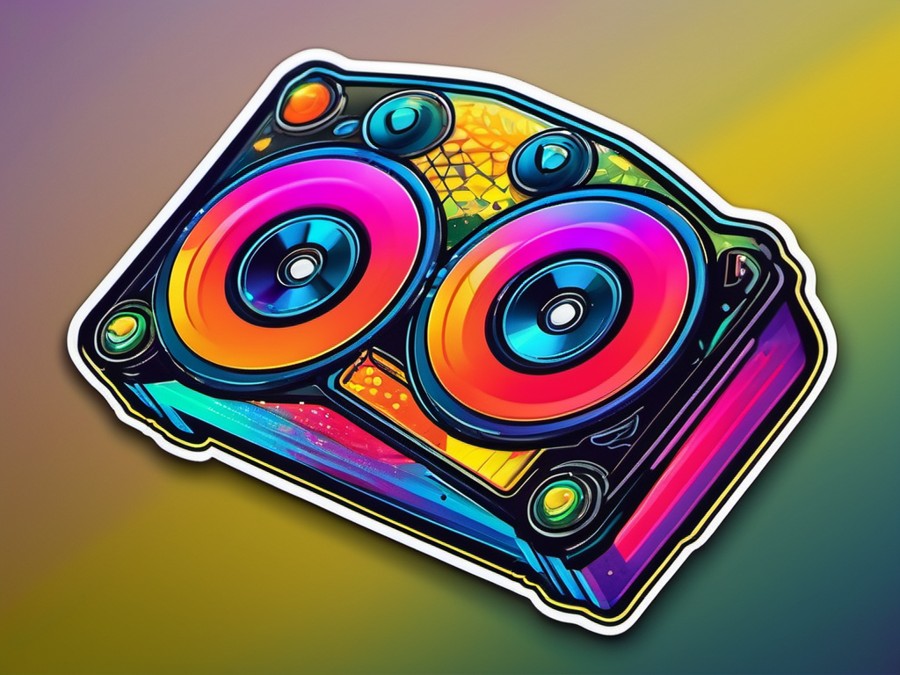· Charlotte Will · Marine Stereos · 9 min read
What is the Difference Between a Marine Stereo and a Standard Car Stereo?
Discover the key differences between marine stereos and car stereos, including water resistance, durability, and audio quality. Learn why investing in a marine stereo can enhance your boating experience and ensure reliable performance in harsh conditions.

Introduction
As a boat enthusiast, you might have wondered: “Why do I need a special stereo for my boat?” The truth is, the marine environment is vastly different from your car’s interior. While a standard car stereo might seem like a cost-effective solution, it simply can’t withstand the rigors of life at sea. In this article, we’ll delve into the key differences between marine stereos and car stereos to help you make an informed decision.
Understanding Marine Stereos
What is a Marine Stereo?
A marine stereo, also known as a boat stereo or waterproof stereo, is an audio system designed specifically for use in marine environments. These stereos are equipped with features that make them highly resistant to the elements, ensuring they can function reliably even in challenging conditions.
Purpose of Marine Stereos
The primary purpose of a marine stereo is to provide high-quality audio in an environment that is subject to moisture, saltwater exposure, vibrations, and extreme temperature changes. They are built to withstand these harsh conditions without compromising on audio quality or durability.
Common Uses in Boats and Watercraft
Marine stereos are commonly used in a variety of watercraft, including boats, yachts, jet skis, and even some recreational vehicles that may be exposed to water. Whether you’re cruising on a luxury yacht or fishing in a small boat, a marine stereo can enhance your experience with clear, robust sound.
Understanding Standard Car Stereos
What is a Standard Car Stereo?
A standard car stereo, also known as an in-dash receiver or head unit, is an audio system designed for use in vehicles. These stereos are typically not waterproof or weather-resistant, making them unsuitable for marine environments.
Purpose of Standard Car Stereos
The primary purpose of a car stereo is to provide audio entertainment within the controlled environment of a vehicle. They are designed to operate in stable temperatures and are not exposed to the same level of moisture, saltwater, or vibrations as marine stereos.
Common Uses in Cars
Car stereos are commonly found in sedans, SUVs, trucks, and other land vehicles. They provide drivers and passengers with the ability to listen to music, podcasts, and other audio content while on the road.
Key Differences Between Marine and Car Stereos
Water Resistance and Weather Protection
One of the most significant differences between marine stereos and car stereos is their level of water resistance. While some modern car stereos may offer basic splash resistance, marine stereos are designed to be fully waterproof and can even withstand direct exposure to saltwater.
Material Durability
Marine stereos are constructed using materials that can withstand the corrosive effects of saltwater and UV exposure. This means they are built from high-quality plastics and metals that can endure the harsh marine environment.
Corrosion Protection
Corrosion is a major concern in marine environments due to the presence of saltwater. Marine stereos are equipped with special coatings and seals that protect against corrosion, ensuring the internal components remain functional even in humid conditions.
Technological Features
Bluetooth Connectivity
Both marine and car stereos often come with Bluetooth connectivity, allowing users to stream audio from their smartphones. However, marine stereos may offer additional features such as easier pairing and connection stability in challenging environments.
Remote Control Capabilities
Many marine stereos come with remote control capabilities, allowing users to adjust the volume, skip tracks, or change settings without directly interacting with the stereo. This is particularly useful in boats where access to the stereo may be limited by the layout or movement of the vessel.
Amplifier Power
Marine stereos often come with more powerful amplifiers to ensure that the audio can be heard clearly over the noise of the engine, wind, and water. This means they can deliver a louder, clearer sound even in noisy environments.
Installation and Maintenance
Ease of Installation
Installing a marine stereo can be more complex than installing a car stereo. While both types of stereos require proper wiring and mounting, marine installations often involve additional steps to ensure waterproofing and durability. Learn more about the best way to install a marine stereo.
Maintenance Requirements
The maintenance requirements for a marine stereo are typically higher than those for a car stereo. Regular cleaning and inspection to ensure that seals and protective coatings remain intact are essential. However, the added maintenance can be worth it for the long-term durability and reliability of a marine stereo.
Audio Quality and Performance
Speaker Size and Configuration
The size and configuration of speakers can vary greatly between marine and car stereos. Marine stereos often come with larger, more powerful speakers to ensure that the audio can be heard clearly over background noise.
Audio Clarity in Varying Conditions
The audio quality of a marine stereo is designed to remain clear and undistorted even in challenging conditions. This means it can handle the vibrations, noise, and other environmental factors that could affect audio clarity in a car stereo.
Vibration Resistance
Vibration resistance is another key feature of marine stereos. The constant motion and vibrations from the engine and water can cause problems for car stereos, but marine stereos are built to withstand these conditions without compromising on audio quality.
Cost Considerations
Price Differences
One of the most noticeable differences between marine and car stereos is the price. Marine stereos are generally more expensive due to their specialized features and durability. However, investing in a high-quality marine stereo can save you money in the long run by avoiding costly repairs or replacements.
Value for Money
When considering the value for money, it’s important to look beyond the initial cost. A marine stereo offers durability, reliability, and superior audio quality in harsh conditions. These features can enhance your boating experience and provide peace of mind knowing that your stereo can withstand the elements.
Real-World Examples
Story 1: Installing a Marine Stereo in a Boat
Imagine setting out on your boat for a day of fishing or cruising. With a marine stereo installed, you can enjoy your favorite tunes without worrying about the stereo getting damaged by water or vibrations. The clear, powerful audio enhances your experience and makes the day even more enjoyable.
Story 2: Attempting to Use a Car Stereo on a Boat
Now, consider trying to use a car stereo in the same boat. The lack of water resistance and corrosion protection means that exposure to saltwater and humidity can quickly damage the stereo. Additionally, the audio quality may suffer due to background noise and vibrations. This can lead to a frustrating experience and the need for costly repairs or replacements.
When to Choose a Marine Stereo
Key Scenarios for Boat Owners
There are several scenarios where choosing a marine stereo is essential:
- If you frequently go boating in saltwater or freshwater environments.
- When your boat is exposed to high levels of humidity.
- If you enjoy boating in conditions with strong winds and vibrations.
- When you want to ensure reliable performance from your stereo in all weather conditions.
Compatibility with Different Boat Types
Marine stereos are suitable for a wide range of boat types, from small fishing boats to large luxury yachts. Whether you’re looking for the best marine stereo for a small boat or something more powerful for a larger vessel, there are options to suit your needs. Learn more about the best marine stereo for a small boat.
When a Car Stereo Might Be Sufficient
Low-Use Scenarios
In some low-use scenarios, a car stereo might be sufficient. For instance, if you only take your boat out occasionally and in calm conditions, a standard car stereo could potentially work. However, it’s important to consider the potential risks and long-term costs.
Budget Constraints
If you’re on a tight budget, you might be tempted to use a car stereo in your boat. While this can save money upfront, the risk of damage and reduced performance can lead to additional costs in the long run. It’s important to weigh these factors and decide what’s best for your specific situation.
Conclusion
In conclusion, the differences between marine stereos and car stereos are significant. Marine stereos are designed to withstand the harsh conditions of life at sea, providing reliable performance and durability. While they may be more expensive upfront, the long-term benefits make them a worthwhile investment for boat owners.
When choosing between a marine stereo and a car stereo, consider your specific needs and the conditions in which you’ll be using the stereo. By doing so, you can make an informed decision that will enhance your boating experience and ensure reliable performance from your audio system.
FAQs
Can I use a regular car stereo in my boat? While it’s possible to use a regular car stereo in your boat, it’s not recommended. Car stereos are not designed to be waterproof or weather-resistant, which means they can be damaged by exposure to water and humidity. Additionally, the audio quality may suffer due to background noise and vibrations.
What are the benefits of using a marine stereo in a boat? Using a marine stereo in your boat offers several benefits, including superior water resistance and weather protection, durability in harsh conditions, corrosion protection, powerful amplifiers for clear audio, and features like remote control capabilities.
Why are marine stereos more expensive than car stereos? Marine stereos are more expensive due to their specialized features and durability. They are designed to withstand harsh marine environments, including exposure to saltwater, humidity, vibrations, and extreme temperature changes. The added cost reflects the quality and longevity of the stereo.
How to choose the right stereo for your boat? When choosing a stereo for your boat, consider factors such as water resistance, durability, corrosion protection, audio quality, and compatibility with your specific boat type. It’s also important to think about your budget and the conditions in which you’ll be using the stereo.
Marine stereo vs standard car stereo: Which is better? In most cases, a marine stereo is the better choice for use in boats. Marine stereos are specifically designed to withstand the harsh conditions of life at sea, providing reliable performance and durability. While they may be more expensive upfront, the long-term benefits make them a worthwhile investment for boat owners.




